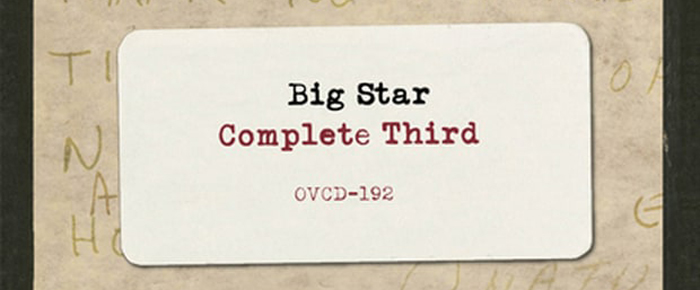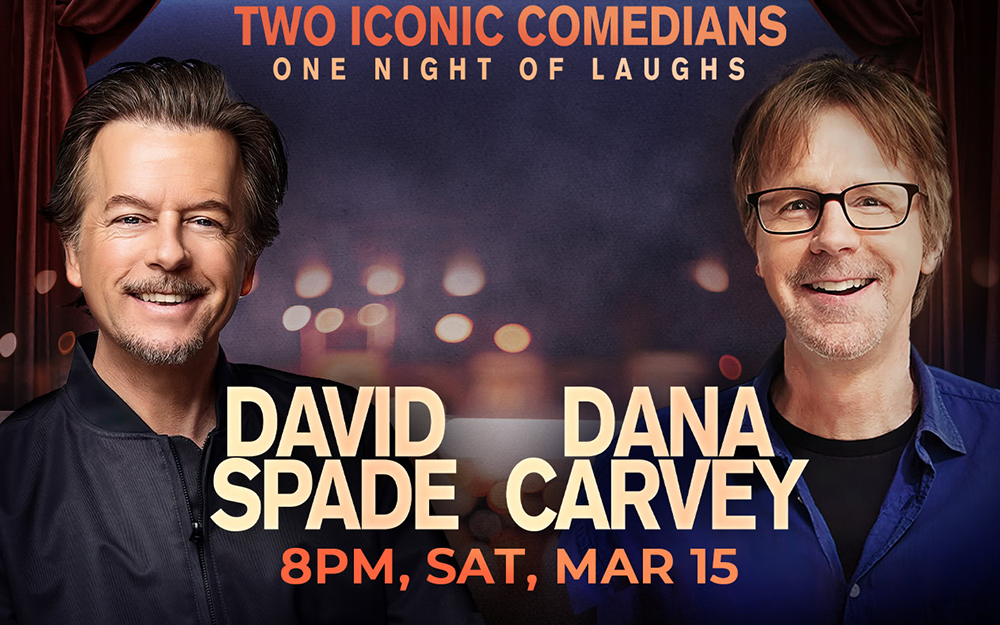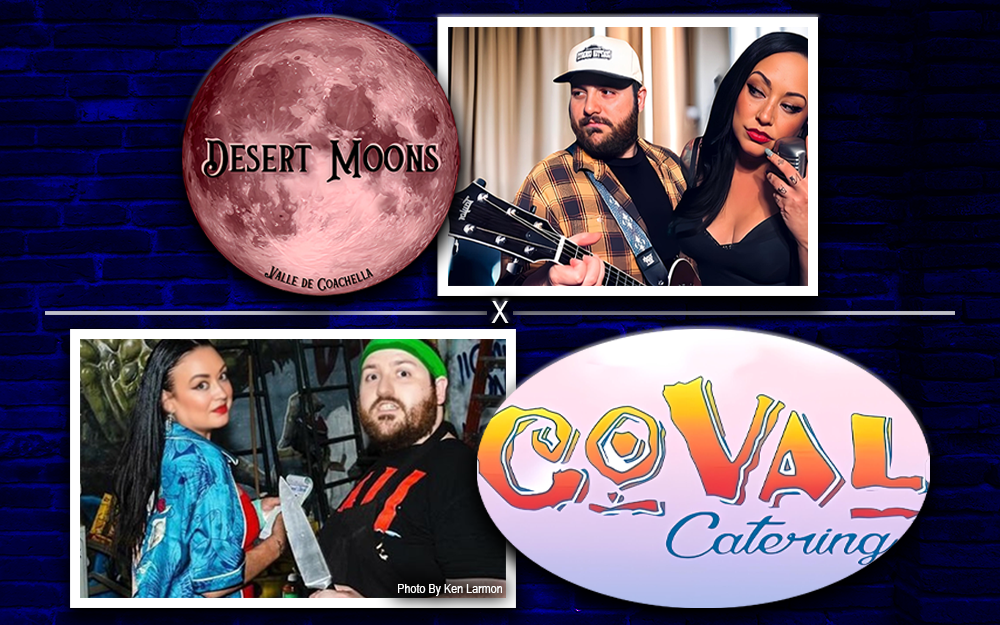
By Eleni P. Austin
One of the biggest mysteries of Rock N’ Roll is: why wasn’t Alex Chilton a bigger star? A preternaturally gifted musician, he had a #1 hit song at age 16, as lead singer for the Box Tops. A few years later he and Chris Bell fronted the seminal ‘70s Power Pop band, Big Star. But ultimately, Rock stardom proved elusive.
William Alexander Chilton was born in Memphis, Tennessee, to a musical family on December 28th 1950. His father, Sidney had worked as a Jazz musician. Alex picked up music pretty quickly and by high school he had cycled through a series of local groups alternating on bass and rhythm guitar and occasionally singing.
In 1966 he hooked up with the Devilles, who promptly changed their name to the Box Tops. They caught the attention of songwriters/producers Chips Moman and Dan Penn and were signed to Bell Records. Their sound was a potent combo-platter of Blue-Eyed Soul and Bubble Gum Pop, centered on Chilton’s deep and soulful growl.
Their first single, “The Letter,” shot to #1 on the Billboard charts and remained there for four weeks. Although they scored two other Top 10 hits, “Cry Like A Baby” in 1968 and “Soul Deep” in 1969, myriad personnel changes left only Chilton and guitarist Gary Talley as original members. By 1970, they called it quits.
Alex Chilton moved to New York City, hoping to jump-start a solo career, but by 1971 he was back in Memphis, reconnecting with Chris Bell, an old friend from High School. Bell had already formed Ice Water, (sometimes known as Rock City), with bassist Andy Hummel and drummer Jody Stephens.
Chilton joined the line-up and the four-piece were signed Ardent Records, a small, homegrown label that recently signed a distribution deal with Stax Records. Home to Sam & Dave, Booker T. & The MGs, Isaac Hayes and the Staple Singers, Stax’s partnership with Ardent would be their first foray with Rock N’ Roll.
The band hunkered down at Ardent, writing and recording their debut. They soon became Big Star, a backhanded homage to the Southern grocery stores that provided sustenance during the long, late nights of recording. Their debut, flippantly entitled #1 Record was released in late 1972. It was a brilliant first effort, full of the same melodicism and sharp instrumentation that recalled seminal music from the Beatles, Beach Boys and Byrds.
Although the Rock cognoscenti fully embraced #1 Record, the album suffered from shoddy distribution. Everyone that heard it loved it, but not that many people heard it. Alex Chilton had already experienced the highs and lows of the record business with the Box Tops. So he was more familiar with the fickle nature of the industry.
For Chris Bell, their lack of immediate success was a huge disappointment. Even though work had already begun on their sophomore album, Bell quit the band. Hummel and Stephens followed suit and Alex Chilton recruited two other musicians to demo new tracks in the studio. Then the trio of Chilton, Hummel and Stephens were persuaded to reunite for a Rock Writers Convention held in Memphis.
It was so successful they both joined Alex in the studio. Chris also briefly returned adding invaluable contributions before quitting for good. Radio City arrived in early 1974, as brilliant as their debut. It was equal parts wistful, evocative and rocking. Again critics were rapturous. Despite the fact that Ardent was now distributed by Stax and gigantic record corporation Columbia, the record still slipped through the cracks. Radio City never reached the masses and received minimal radio airplay.
At this point Andy Hummel jumped ship, returning to college. This is where the story gets murky. Alex and Jody began working on music that would either be an Alex Chilton solo record or another Big Star effort. Meanwhile, both Alex and Jody had each begun dating twin sisters, Lesa and Holliday Aldridge.
Alex and Lesa holed up at Ardent, writing and recording demos and consuming copious amounts of drugs. To produce, they enlisted Jim Dickinson. The Memphis session musician had made his bones playing on iconic records by Aretha Franklin, Jerry Jeff Walker, the Rolling Stones and Ry Cooder.
Sessions were chaotic, Alex’s compositions were fiercely personal, centering on Lesa, who acted as muse, lover, combatant and co-conspirator. Jody Stephens played drums and brought in a string section. To Ardent, that constituted a Big Star album and that is how it was marketed. A few titles were bandied about, “Beale Street Green,” “Sister/Lovers” and “Third,” (sometimes “3rd”). In the ensuing years it’s been known by the latter two.
It was mastered in early 1975 and Ardent’s owner, John Fry personally shopped it around to major labels for distribution. At Warner Brothers the legendary Lenny Waronker listened through once and asked “Do I have to listen again?” At Atlantic, Jerry Wexler, (Vice President of the label and sonic architect behind Aretha, Ray Charles and Wilson Pickett), commented “Baby, that is very disturbing.” So the record was shelved.
The tiny label PVC released it in 1978 and reactions were mixed. Dark, slightly decadent and dissolute, even Big Star’s biggest fans were initially confounded. Over the years it’s been in and out of print, re-released in various permutations and has found a niche.
In the 41 years since it was recorded it has attained a loyal following among Big Star devotees. It was also a huge influence on artists like R.E.M., the Replacements, the db’s, Game Theory, the Posies, Teenage Fanclub, Matthew Sweet, Nirvana, Jeff Buckley and Wilco.
 The last re-issue of Third was released in 1992 and has been out of print for several years. Thankfully, the fine folks at Omnivore Records have scoured the Big Star vaults, coming up with the definitive three disc version of Third. Not only does Complete Third feature the same track-listing originally devised by Alex and Jim Dickinson, it also includes one disc of “demos to sessions to roughs,” and a second disc of “roughs to mixes.”
The last re-issue of Third was released in 1992 and has been out of print for several years. Thankfully, the fine folks at Omnivore Records have scoured the Big Star vaults, coming up with the definitive three disc version of Third. Not only does Complete Third feature the same track-listing originally devised by Alex and Jim Dickinson, it also includes one disc of “demos to sessions to roughs,” and a second disc of “roughs to mixes.”
The album opens with a snippet of backwards guitar before folding into lush acoustic guitar notes and a feathery string section. The first track, “Stroke It Noel,” is named for Alex’s ad-libbed exhortation as he encourages Memphis Symphony violinist Noel Gilbert to saw away. His improvised line inspired him to completely re-write the lyrics as an enthusiastic invitation to dance. (The original version of the song, known as “Lovely Day,” pops up toward the end of the record)
Third is an album filled with dazzling highs and devastating lows. The melodic schizophrenia seemed to mirror Alex’s skewed frame of mind at the time. The lyrics on “Thank You Friends,” straddle the line between sarcasm and sincerity. Blending jangly guitar riffs, propulsive rhythms, swooping strings and joyous call-and-response backing vocals, he extends this appreciative testimonial; “Without my friends I got chaos, I’m often a bead of light/ Without my friends I’d be swept up high by the wind.” Over the instrumental break Alex executes a rippling guitar solo that gives the song a sunshiny patina.
“Jesus Christ” opens with a vaudevillian piano vamp before locking into a mid-tempo Country-flavored rocker. Anchored by roiling tympani, fuzzy stop-start guitar and honking sax, the lyrics offer a beatific paean to the King Of Kings, “Lo, they did rejoice, fine and pure of voice/And the wrong shall fail and the right prevail.” All that’s missing is Linus wrapping his security blanket around a scrawny Christmas tree.
“For You,” the only track written by Jody Stephens, is equally open-hearted. Originally entitled “Fireplace,” it’s accented by sweet acoustic arpeggios and swelling strings that see-saw, pluck and soar. The lyrics paint an idyllic tableau: “When I come home so cold at night, you’ll have the fireplace warm and bright/Thoughts of how it’s going to be, and how I’ll spend those cold, cold nights warmed by you.” Weirdly, it exudes the same tender optimism as Crosby, Stills & Nash’s “Our House.”
On both “You Can’t Have Me” and “O, Dana,” buoyant melodies and instrumentation nearly camouflage Alex’s casual vitriol and misogyny. On the former crisp guitar riffs collide with clangorous saxophone and off-kilter percussion. Here, he seems to be excoriating his muse with cryptic and specific invective; “Sidewinder, you klepto, you do steal things…the drummer said you were not very clean.” As if to punctuate the point, a walloping drum solo closes out the track offering the kind of controlled chaos pioneered by the Who’s Keith Moon.
The latter is a ramshackle shuffle powered by twinkly piano, wheezy keys, ricochet bass and serpentine guitar. But it’s whimsical charm is neatly undercut by the opening line; “I’d rather shoot a woman than a man.”
Three tracks plumb the depths of despair. “Holocaust” offers a harrowing indictment of drug addiction. Over plaintive piano notes and sawing cello Alex recites a litany of symptoms; “Your eyes are almost dead, can’t get out of bed, and you can’t sleep.” Stark and somber, it echoes John Lennon’s early, anguished solo songs.
“Kanga Roo” is a bittersweet dirge that seems to chart his initial attraction to Lesa Aldridge. Splintered guitar riffs butt up against dissonant strings and random cowbell accents. It’s raw and intimate and wildly uncomfortable.
Finally, “Big Black Car” is tentative and soporific. Even as he insists “driving in my big black car, nothing can go wrong…nothing can hurt me,” the listener immediately detects this is bullshit. Gossamer guitar weaves concentric circles around elegiac piano fills designed to break your heart.
Certain songs are best described as sadly beautiful. Baroque and wistful, “Blue Moon” is clearly inspired by the Velvet Underground’s “I’ll Be Your Mirror.” The nocturnal anxiety of “Nightime” is tempered by pedal steel and plush strings. There’s an Elizabethan elegance to “Take Care.” It recalls the pastoral grace of British singer-songwriter Nick Drake. The shivery “Dream Lover” is buoyed by a soulful and meandering guitar break.
Originally, Third included a Southern-Gothic take on the Velvet Underground classic “Femme Fatale.” The Omnivore re-issue also includes a shambolic version of Jerry Lee Lewis’ “Whole Lotta Shakin’ Goin’ On,” plus a spot-on rendering of the Kinks’ “Till The End Of The Day.”
The biggest surprise is the clear-eyed rendition of “Nature Boy,” which closes out the album. A hit for Nat King Cole in 1948, it was written by eden ahbez (ne’ George Alexander Aberle); a proto-hippie who lived in the vegetation surrounding the Hollywood sign. Alex’s achingly pure vocals are accompanied on piano by photographer, Bill Eggleston.
For Big Star fanatics, the real treasure trove is the first two discs, filled surfeit of essential Alex Chilton ephemera. Each disc offer sketches and blueprints of Third tracks, built from the ground up. Alex (and sometimes Lesa), also puts his individual stamp on a clutch of iconic tracks like Beach Boys’ “Don’t Worry Baby,” the Beatles’ “I’m So Tired,” plus “Baby Strange” from British Glam superstar, T-Rex and a duet with Lesa on George Jones’ classic Country weeper, “That’s All It Took.”
Once Alex Chilton completed the record, he embarked on an erratic solo career. Tragically, Chris Bell finished a solo record in 1978, and a few days later he was killed in a car crash. In 1992, Alex began sporadically reuniting with Jody Stephens, resuscitating the Big Star brand augmented by Jon Auer and Ken Stringfellow of the Posies. They even wrote and recorded a fourth Big Star effort, In Space released in 2005.
Commercially, the band received their biggest boost when Cheap Trick recorded a version of their “In The Street” song as the theme for the TV series “That ‘70s Show.” Suddenly, Big Star music was featured on national television on a weekly basis.
Sadly, on the eve of performing a showcase at SXSW in 2010, Alex suffered a fatal heart attack. Andy Hummel succumbed to cancer a few months later. Jody Stephens remains the last man standing. The Big Star story is presented in more elegant and poignant terms in the 2012 documentary, “Nothing Can Hurt Me.”
In just under 60 years, Alex Chilton began his career as precocious wunderkind and ended up a bit of a mercurial misanthrope. He and Chris Bell were most definitely Memphis’ answer to Lennon & McCartney. On Third he took pain and transformed it into beauty. Finally, Omnivore presents it completely, in all its ragged glory.









































